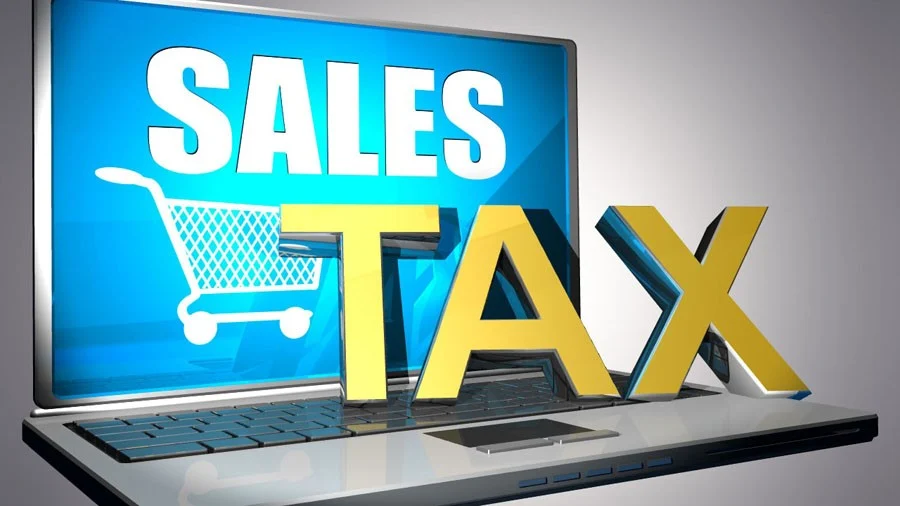A GST-Sales Tax Registration, Return Filing & Refund guide is provided to our clients and other taxpayers. In Karachi, Islamabad, Rawalpindi, and other cities of Pakistan, our tax attorneys and consultants provide sales tax (GST) registration and monthly return filing services.

Pakistan’s sales tax was a provincial matter when the country was founded. Punjab & Sindh administered the levy as a provincial tax. The General Sales Tax Act, 1948 established sales tax as a federal tax in 1948, and in 1952, the Central Government permanently acquired it. In 1948, the General Sales Tax Act, 1948, made sales tax a federal tax, and in 1952, the Central Government permanently acquired it. As a result of protests by the trading community, the Sales Tax Act 1951 was enacted.
The government established a system allowing approved manufacturers and wholesalers to purchase goods from each other without paying sales taxes, and to pay tax on sales to unlicensed traders. Imports were subject to Sales Tax, while licensees were allowed to import goods without paying Sales Tax. Sales tax began to be charged at the time of sales and imports of locally produced and imported goods. According to a 1981 amendment to the Sales Tax Act, 1951, the Central Excise Department can also collect tax on non-excisable items.
Value Added Tax was introduced in the early 1980s as part of the government’s structural adjustment program to correct anomalous and distorting aspects of sales tax and non-tax policies. The Sales Tax Act of 1990 repealed the Sales Tax Act of 1951.
Sales Tax Registration and Monthly Return Filing are required in the following sectors:
Manufacturing & import had previously been subject to the Sales Tax, and it has now been extended to the rest of the economy.
It is applicable to goods produced and imported into Pakistan, except for computers, software, poultry feed, medicines, and unprocessed agricultural produce, as well as items listed in Section 6 of the Sales Tax Act, 1990.
According to the Sales Tax Act, everyone who makes a taxable supply in Pakistan must register with the FBR. Companies with annual revenues under five million rupees. Retailers with a turnover under five million rupees can claim an exemption from sales tax.
In the case of supplies, taxes are based on 17% of the price. Taxes must be applied based on the item being supplied (see SRO 644(I)/2007 as amended by SRO 537(I)/2008 dated 11th June 2008).
In order to obtain a Registration Number, those liable to register under the Sales Tax Act must submit the Registration Form(s) to the Registration Office, FBR, or local sales tax collectors/RTOs. The taxpayer is then issued a Certificate of Registration online.

GST-registered persons must file monthly returns by the 18th of the month for sales made during the previous month.
In order to use the FBR’s e-portal, all registered individuals and companies must electronically file their Sales tax returns. By the 15th, the payment must be made and the return must be submitted.
There are detailed instructions on this subject in Sales Tax General Order No. 04 of 2007. Various segments are required to file quarterly (tri-monthly) returns, such as retailers, CNG dealers, and dealers of specified electric goods.
A record of all goods purchased and supplied by a registered person must be kept on the premises. All records must be kept for five years.
When an individual’s input tax exceeds their output tax because of exports, etc., the excess input tax is refunded within 45 days. For all other cases, the Board can determine the refund procedure.
The FBR collected and transferred Rs. 18.28 billion from sales taxes on services (SST) in 2010-11 at an average rate of 17%. Sindh Sales Tax on Services Act, 2011 empowered SRB to administer, levy, and collect sales tax for the 2011-12 fiscal year, reducing the standard rate from 17% to 16%.
A National Sales Tax return has been developed and implemented by the Federal Board of Revenue (FBR). At this time, this return is only applicable to individuals registered with the FBR. Currently, the FBR is consulting with provinces about extending the National Sales Tax Return.
SRB has requested taxpayers to continue filing their Sindh sales tax returns in the form SST-03 via the SRB website http://e.srb.gos.pk in accordance with the Sindh Sales Tax on Services Act, 2011.
Upon failure to pay tax within the specified time frame, claiming a tax credit or refund that is not admissible, or applying the zero percent rate incorrectly, a tad will be charged:
Monthly payment equal to one-half percent of the tax due;
In cases of tax fraud, however, additional taxes are charged at a rate of two percent per month.
Arrears are addressed in the following situations:

We keep our clients informed on new developments and regulations concerning sales tax matters in Pakistan through our Tax Lawyers and Senior Consultants. Currently, tax laws and reforms are so complex that it is extremely difficult to avoid serious penalties and business losses. Getting registered with the sales tax department and documenting your periodic tax returns will be handled by our professional GST consultants in Karachi.
In addition to GST registration and GST returns, we also provide GST refunds. For more information on our sales tax consulting services in Karachi and Islamabad, please contact us today.